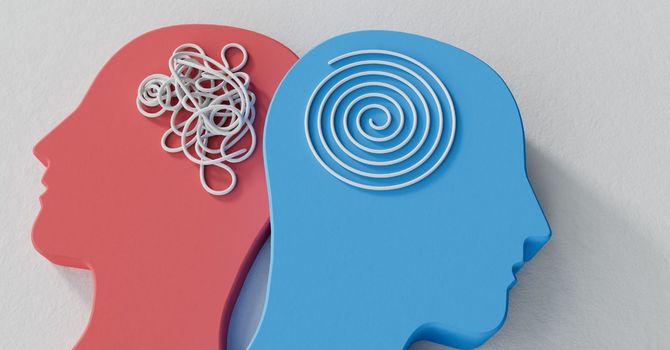.jpg)
Myth – Co-regulation [assisting your child with managing and accepting their difficult feelings, from the outside with gentle touch, singing lullabies, soothing their cries, rocking, smiling etc. (Hoffman et al., 2017)] will lead your child to become dependant upon you for support and spoil them.
Fact – You cannot spoil a child with gentle and healthy touch and by responding to their needs. (Circle of Security International).
How many times have you heard, “Don’t pick up your baby when they cry, you’ll only make a habit out of this?”, or “Give them space, they’ll calm down on their own”. Truth be told, your baby crying is their way of communicating to you that they need something. Likewise, leaving your child alone or sending them to their room to calm down on their own will leave them in a state of isolation and emotional confusion. If your baby’s cries are not met with a nurturing response, or your child is left without help, they both will be left to try and organize their feelings alone, thus instilling the schema “no one will come for me, I’m on my own”. When you respond to you baby’s cries, and to your child’s escalated state with nurturance (soft and calm voice, warm and gentle touch) you are helping them learn how to regulate their emotional responses. Through this co-regulation, your baby/child will mature into an individual who develops the adaptive schema of “I’m not alone, my needs can be met, I can handle this”, and with this belief, self-regulation begins to emerge over time.
Why do I need to be regulated to engage in co-regulation?
One of the most important things, if not the most important component of co-regulation is to ensure that you are regulated yourself. If you are not able to remain calm and be in tune with what is happening in your internal world, it is unlikely that co-regulation will be successful. In this first step, is it of utmost importance to ensure that you take even as little as 60 seconds to tune into your internal world and recognize what is happening for you (this gets easier the more often you do it). Take this moment to recognize what bodily sensations (e.g., tight chest, heavy shoulders, fuzzy head, etc.) you are experiencing, what emotions are connected to those sensations (e.g., overwhelm, anger, frustration, sadness, etc.), and provide yourself with compassion and permission to feel (e.g., “It is okay that I am feeling overwhelmed right now, this is a really difficult situation, I need to calm myself so I can support my child”). Then step away from the situation, take a couple deep breaths, and have a drink of cold water before approaching your child.
Why is touch so important in co-regulation?
The use of gentle touch releases the hormone oxytocin. With an increase in oxytocin the bond between you and your baby/child increases, and as a result, your baby/child likely feels safe, seen, soothed and secure - What Dan Siegel calls the 4 S’ in his book The Power of Showing Up. When your child experiences a release of oxytocin their stress response is calmed, thus diminishing the negative effects of cortisol (stress hormone). Gentle, and soothing touch, such as a hug, a warm embrace, a back rub etc. is a superpower that often does not get the credit it deserves. I encourage every parent reading this post to go out and trial the effects of gentle touch when o-regulating your child, but also when regulating yourself.




